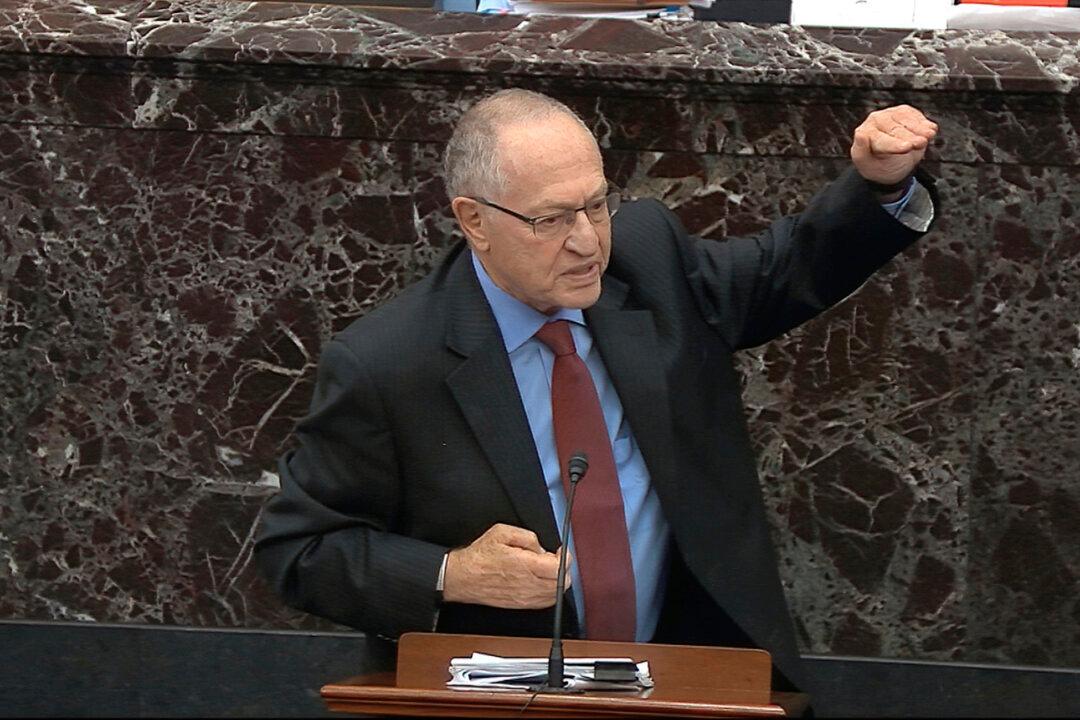Harvard Law professor emeritus Alan Dershowitz said Twitter, YouTube, and other legacy tech companies are “partisan political tools” and should not be protected under Section 230.
“YouTube is no longer a platform, and Twitter is no longer a platform,” said Dershowitz on his podcast Tuesday. “It’s a partisan political tool that can be used for purposes that were unintended by Section 230, and Section 230 must be amended, or at least interpreted not to apply to platforms that censor.”





